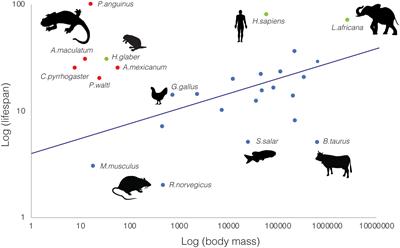EDITORIAL
Published on 16 Feb 2022
Editorial: Mechanisms and Pathways Contributing to the Diversity of Aging Across the Tree of Life
doi 10.3389/fcell.2022.854700
- 1,544 views
- 3 citations
23k
Total downloads
138k
Total views and downloads
Select the journal/section where you want your idea to be submitted:
EDITORIAL
Published on 16 Feb 2022
REVIEW
Published on 03 Jan 2022

ORIGINAL RESEARCH
Published on 17 Dec 2021

REVIEW
Published on 18 Oct 2021

HYPOTHESIS AND THEORY
Published on 27 Aug 2021

BRIEF RESEARCH REPORT
Published on 19 Aug 2021

REVIEW
Published on 18 Jun 2021

MINI REVIEW
Published on 15 Jun 2021
PERSPECTIVE
Published on 07 Jun 2021

ORIGINAL RESEARCH
Published on 20 May 2021

ORIGINAL RESEARCH
Published on 29 Mar 2021

REVIEW
Published on 05 Mar 2021


Frontiers in Genetics